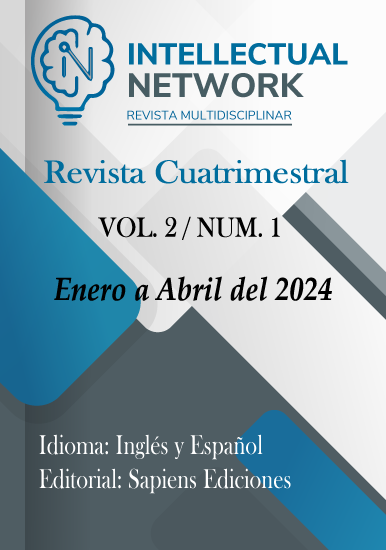Towards inclusive education: ethical challenges in the integration of students with disabilities
Keywords:
inclusive education, teacher training, educational policies, educational gapsAbstract
This study analyzed the challenges and opportunities inherent in the establishment of inclusive education, placing special emphasis on the discrepancy between government policies and their implementation in specific educational settings. Through a thorough review of the existing literature, the primary elements that hinder effective inclusion were identified, highlighting the importance of educator training, institutional support, and resource accessibility, particularly in rural areas and disadvantaged communities. The findings emphasized that, despite progress in inclusion policies, considerable obstacles remain in their implementation. The most critical elements identified include the lack of specialized training for educators and the insufficiency of essential material and human resources for the care of the entire student population. From a methodological perspective, the study was based on a meticulous review of previous research and the examination of regulations and policies related to inclusive education. The data collection encompassed official reports, academic research, and public policy documents, providing a perspective on the structural and cultural impediments that hinder full integration into the educational system. This study concluded that achieving genuinely inclusive education is not only linked to meticulously formulated public policies but also to a collective commitment to changing attitudes and practices within educational communities. In this context, cooperation between the authorities, the teaching staff, and the families is essential.
References
Acevedo Rodríguez, C., & Valenti Nigrini, G. (2017). Exclusión social en Ecuador. Buen Vivir y modernización capitalista. Polis. Revista Latinoamericana, 46, Article 46. https://journals.openedition.org/polis/12319
Angenscheidt Bidegain, L., Navarrete Antola, I., Angenscheidt Bidegain, L., & Navarrete Antola, I. (2017). Actitudes de los docentes acerca de la educación inclusiva. Ciencias Psicológicas, 11(2), 233-243. https://doi.org/10.22235/cp.v11i2.1500
Ávila Gómez, M. (2018). Políticas de educación inclusiva, ¿lo estamos haciendo bien? http://riberdis.cedid.es/handle/11181/5684
Aysanoa, P. A. C. (2019). Hacia una educación rural inclusiva. Revista de Educación Inclusiva, 12(1), Article 1. https://revistaeducacioninclusiva.es/index.php/REI/article/view/400
Cañabate Reyes, E. J., & de la Herrán Gascón, A. (2021). ¿Qué opinan los alumnos con discapacidad intelectual sobre la educación inclusiva? Boletín Redipe, 10(6), 110-125. https://dialnet.unirioja.es/servlet/articulo?codigo=8116455
Caparrós Martín, E., & García García, M. (2021). Éticas para la esperanza de una educación inclusiva. Tendencias pedagógicas, 38, 83-97. https://dialnet.unirioja.es/servlet/articulo?codigo=8032411
Etxeberría, X. (2018). Ética de la inclusión y personas con discapacidad intelectual. http://riberdis.cedid.es/handle/11181/5387
Fernández, M. M., & Peralta, A. V. (2021). Discapacidad intelectual: Aportes de la bioética al modelo social en educación inclusiva. Revista Iberoamericana de Bioética, 15, Article 15. https://doi.org/10.14422/rib.i15.y2021.004
Gaete, A., & Luna, L. (2019). Educación inclusiva y democracia. Revista Fuentes, 21(2), Article 2. https://doi.org/10.12795/revistafuentes.2019.v21.i2.02
González, A. O. (2021). CLAVES EN LA CONSTRUCCIÓN DEL CONOCIMIENTO DE LA EDUCACIÓN INCLUSIVA. Revista Práxis Educacional, 17(45), 338-356. https://doi.org/10.22481/praxisedu.v17i45.8140
Granja, D. O. (2015). El constructivismo como teoría y método de enseñanza. Sophia, 19, Article 19. https://doi.org/10.17163/soph.n19.2015.04
Lazazzera, C. (2021). La educación inclusiva como herramienta de transformación social. Actas de Diseño, 40, Article 40. https://dspace.palermo.edu/ojs/index.php/actas/article/view/5733
Ocampo, A. (2022). LA EDUCACIÓN INCLUSIVA COMO DISPOSITIVO HEURÍSTICO. Revista Chakiñan de Ciencias Sociales y Humanidades, 16, 159-176. https://doi.org/10.37135/chk.002.16.10
Ocampo González, A. A. (2019). Contornos teóricos de la educación inclusiva. Boletín Redipe, 8(3), 66-95. https://dialnet.unirioja.es/servlet/articulo?codigo=7528232
Peña Loaiza, G. X., Peñaloza Peñaloza, W. L., Carrillo Minchalo, M. J., Peña Loaiza, G. X., Peñaloza Peñaloza, W. L., & Carrillo Minchalo, M. J. (2018). La educación inclusiva en el proceso de formación docente. Conrado, 14, 194-200. http://scielo.sld.cu/scielo.php?pid=S1990-86442018000500194&script=sci_arttext&tlng=en
Ruiz-Bejarano, A. M. (2020). Educación inclusiva, criticidad y compromiso social. Innovación docente y Aprendizaje-Servicio en la formación inicial docente. REDU. Revista de Docencia Universitaria, 18(1), 233-248. https://doi.org/10.4995/redu.2020.12407
Sanmartín, G., Borzi, S., Vazquez, M. J. S., Aronson, G., Obando, L. L. C., Casal, V. del C., Gispert, F., Maurin, G. V., Padín, C., & Ortega, R. S. (2022). Educación inclusiva para niñas y niños con discapacidades: Derechos de las infancias, cuidado, formación docente. Noveduc. https://books.google.es/books?hl=es&lr=&id=h2qbEAAAQBAJ&oi=fnd&pg=PA11&dq=Sanmart%C3%ADn,+G.,+Borzi,+S.,+Vazquez,+M.+J.+S.,+Aronson,+G.,+Obando,+L.+L.+C.,+Casal,+V.+del+C.,+Gispert,+F.,+Maurin,+G.+V.,+Pad%C3%ADn,+C.,+%26+Ortega,+R.+S.+(2022).+Educaci%C3%B3n+inclusiva+para+ni%C3%B1as+y+ni%C3%B1os+con+discapacidades:+Derechos+de+las+infancias,+cuidado,+formaci%C3%B3n+docente.+Noveduc.&ots=U_PjYU1ALy&sig=GRatDx4BmRt6tSjiOA5LUqCoJ3I
Sierra Socorro, J. J., García Reyes, O., Sierra Socorro, J. J., & García Reyes, O. (2020). La educación inclusiva. Su componente normativo desde los organismos internacionales y las políticas públicas nacionales. Mendive. Revista de Educación, 18(1), 134-154. http://scielo.sld.cu/scielo.php?pid=S1815-76962020000100134&script=sci_arttext
Sota, E. (2018). La metáfora de campo social: Una lectura epistemológica de la sociología de Pierre Bourdieu. Eduvim. https://books.google.es/books?hl=es&lr=&id=Vf5QDwAAQBAJ&oi=fnd&pg=PT2&dq=Sota,+E.+(2018).+La+met%C3%A1fora+de+campo+social:+Una+lectura+epistemol%C3%B3gica+de+la+sociolog%C3%ADa+de+Pierre+Bourdieu.+Eduvim&ots=xOcRYqG4R-&sig=xGCUtu0NTu3dAus4Ao3Q8Bd1k4c
Tamayo Rozas, M., Carvallo Arrau, M. F., Sánchez Cornejo, M., Besoaín-Saldaña, Á., & Rebolledo Sanhueza, J. (2018). Programa de Integración Escolar en Chile: Brechas y desafíos para la implementación de un programa de educación inclusiva. http://riberdis.cedid.es/handle/11181/5385
Verdera, V. V., & Miranda, A. M. S. (2017). ENFOQUE DE LAS CAPACIDADES Y EDUCACIÓN INCLUSIVA. Edetania. Estudios y propuestas socioeducativos., 51, Article 51. https://revistas.ucv.es/edetania/index.php/Edetania/article/view/106
Downloads
Published
Issue
Section
License
Copyright (c) 2024 Shantal Stefanie Cáceres Guamán , Carolina Elizabeth Narváez Ramírez , Patricia Nicol Chanatasig Teran (Autor/a)

This work is licensed under a Creative Commons Attribution 4.0 International License.



